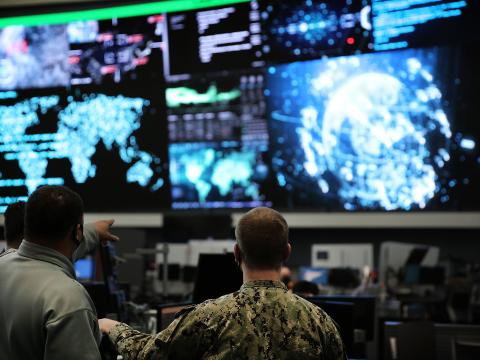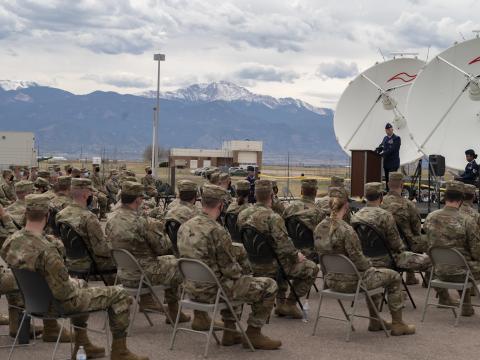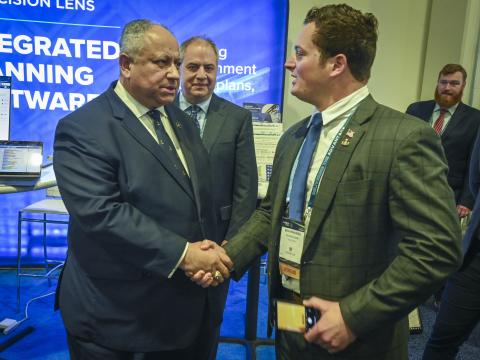Globalization Changing the Face of Conflict
In an extremely provocative speech, Dr. Thomas P.M. Barnett, author of The Pentagon's New Map, opened Wednesday's Joint Warfighting Conference by sharing his vision of the effect of globalization on nations and coalitions. He applauded the establishment of the U.S. Africa Command as a solid step toward moving globalization in a positive direction.
In an extremely provocative speech, Dr. Thomas P.M. Barnett, author of The Pentagon's New Map, opened Wednesday's Joint Warfighting Conference by sharing his vision of the effect of globalization on nations and coalitions. He applauded the establishment of the U.S. Africa Command as a solid step toward moving globalization in a positive direction.
Barnett described the gap between well-connected as well as economically stable nations and those countries that lag behind or are just beginning their journey onto the globalization road. He predicted that this gap, where 90 percent of world violence now occurs, will shrink during the next 30 to 40 years based on activities conducted by Asia and Europe rather than U.S. activities. In addition, Barnett pointed out that globalization is coming to these areas very quickly, but he warned that many of these nations do not have the leadership or other resources to handle it.
To help in this transition, Barnett suggested that the U.S. must improve how it prepares politically and economically challenged nations to handle the shock of globalization. To accomplish some of the tasks during this evolutionary era, the U.S. military must beef up its ability to support stability and reconstruction skills. But, Barnett added, an increase in support from other U.S. government agencies as well as coalition partners will be needed. Even in light of these changes, however, it is likely that it will be the public sector that will have the biggest impact on continued globalization because a strong economy is every nation's goal, he said.
In Barnett's view, the focus of the U.S. military has shifted greatly during the past several decades. During the Cold War, the Defense Department worked toward defeating a single enemy during a large conflict. Now and in the future, military leaders must turn this strategy on its head and strive to fight and win small asymmetric conflicts, and the military leadership will move forward based on these successes.
While the term "hybrid warfare" was a hot topic of conversation during the first day of the conference, Barnett proposed a discussion about "hybrid peace." Regarding operation Iraqi Freedom, he said he believes the number of troops sent into military operations at the beginning of the conflict was adequate; however, the much higher estimate of military troop requirements prior to war was more on point for stabilization, counterinsurgency and peace operations.
Referring to his assertion that economic rather than military activity will lead to peace, he advised that creating jobs is the only exit strategy. Because commerce between U.S. states, cities and counties occurs daily and seamlessly in this nation, Barnett proposed that the goal of the U.S. should be to help other nations resemble the United States not politically but economically.



